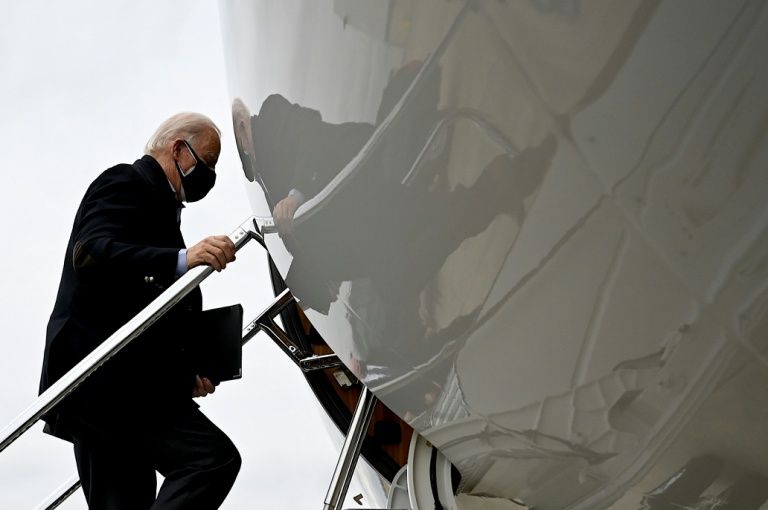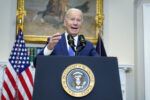Biden to unveil economic plan as US recovery buckles
President-elect Joe Biden will likely roll out a package costing trillions of dollars, but whether Congress will approve that is another question. ©AFP/File Jim WATSON
Washington (AFP) – President-elect Joe Biden will unveil his plan on Thursday to revive the US economy, as evidence mounts that its recovery from the coronavirus pandemic is flagging despite trillions of dollars in government spending.
With his fellow Democrats narrowly controlling both houses of Congress, Biden appears to have a good shot at passing a third massive rescue package that could include everything from another round of stimulus payments to an increase in the minimum wage.
“We need more direct relief flowing to families (and) small businesses, including finishing the job of getting people the $2,000 in relief,” Biden said last week, referring to the last package that provided $600 in direct payments.
The funds could help revitalize a recovery that appears to be buckling under the weight of the nationwide surge in Covid-19 cases.
The government on Thursday reported a surge in new jobless claim filings in the first week of 2021, and the latest nationwide employment statistics showed the world’s largest economy shedding jobs in December.
While some of that spike may be tied to Congress’s recent move to reauthorize expanded unemployment programs that had lapsed, analysts warn the country may indeed be seeing the toll from the nationwide surge in infections.
“While prospects for the economy later in 2021 are upbeat, the labor market recovery has taken a step backward and we expect claims to remain elevated with the risk that they rise from last week’s levels,” Nancy Vanden Houten of Oxford Economics said.
– Third relief package –
Biden will take office on Wednesday next week after a tumultuous transition that saw violent supporters of outgoing President Donald Trump invade the US Capitol as lawmakers were meeting to certify the Democrat’s election victory.
His stimulus will build on the two massive relief packages Congress approved in 2020, and likely include an extension of unemployment benefits that have helped tens of millions of people pay their bills after losing their jobs during the pandemic.
He pledged last week to provide aid to US municipalities that may have to fire thousands of teachers, police officers and firefighters across the country, and more help to small businesses, especially minority-owned firms.
Biden vowed an aid package costing “trillions of dollars,” but Michael Feroli of JP Morgan predicted Congress could pare it down to the $900 billion range, matching the measure approved last month.
Nonetheless, that amount would help boost GDP growth this year to 5.3 percent and in 2022 to 2.6 percent, a “remarkable expected turnaround” aided also by negligible inflation and the Federal Reserve’s maintenance of low borrowing rates.
– Bigger checks –
Another issue the president-elect faces are the $600 stimulus checks included in the aid package approved in the final days of December, which he said are “simply not enough.”
Raising those to $2,000 will be a priority for Biden, who promised the Georgia voters who gave two crucial Senate seats to Democrats in a runoff elections last year that he would do so.
But with only the slimmest of majorities in Congress — including an evenly split Senate where Vice President-elect Kamala Harris will have the tie-breaking vote — Democrats will have to woo some Republicans if any in their party breaks ranks.
One Democratic senator has already expressed hesitation over increasing the payments, but earlier this week Republican Senator Marco Rubio told Biden he’d back doing so — potentially giving him the votes he needs.
Additional government spending could help turn around an employment situation that appears to be worsening, with the Labor Department on Thursday reporting new filings for unemployment benefits climbing by their biggest one-week total since March to 965,000.
In addition, 284,470 people applied for benefits under a program passed during the pandemic to help workers not normally eligible, bringing the total newly laid-off last week to more than 1.2 million.
“The restrictions imposed to combat the third Covid wave clearly have done great damage,” said Ian Shepherdson of Pantheon Macroeconomics, who predicted that the weekly totals may moderate as vaccines are rolled out and as small businesses benefit from government aid programs.
Disclaimer: Validity of the above story is for 7 Days from original date of publishing. Source: AFP.


